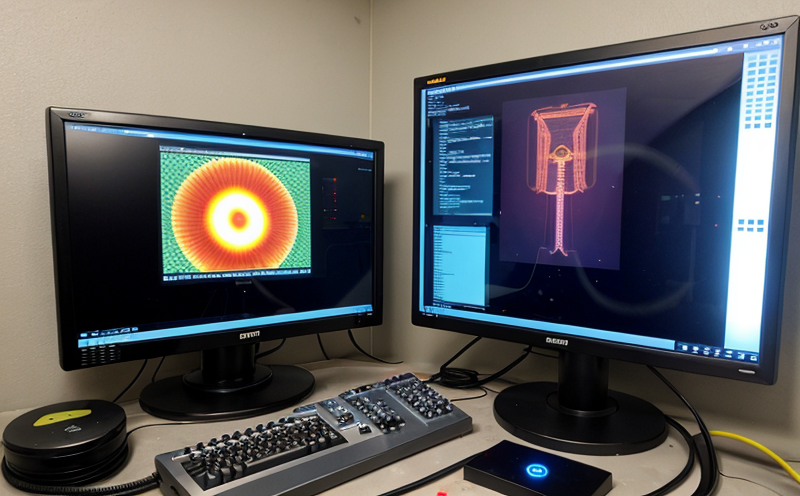IEC 62040 EMC Testing for Uninterruptible Power Systems
The International Electrotechnical Commission (IEC) Standard IEC 62040 is a critical tool for ensuring the electromagnetic compatibility (EMC) of uninterruptible power systems (UPS). This standard sets out stringent requirements and test procedures to verify that UPS systems can operate in an environment without causing harmful interference or being adversely affected by other electronic devices. EMC testing ensures that electrical equipment functions as intended, operates safely, and does not emit excessive electromagnetic interference.
Uninterruptible power systems are designed to provide continuous power supply during a mains voltage drop or interruption. They play a crucial role in protecting critical infrastructure such as data centers, hospitals, and telecommunications networks from potential disruptions caused by electrical disturbances. Given the sensitive nature of these applications, it is essential that UPS systems meet stringent EMC standards.
The IEC 62040 standard defines specific test procedures to evaluate the electromagnetic emissions and immunity of UPS units. These tests encompass a range of scenarios including conducted emissions (CE), radiated emissions (RE), and both conducted and radiated immunity (CRE). The primary aim is to ensure that the UPS system does not introduce excessive interference into its surroundings and can withstand external electromagnetic disturbances without failure.
Conducted emissions are measured through test setups such as a 10-meter cable with an attenuator, while radiated emissions are evaluated using an anechoic chamber. Immunity tests assess the UPS's ability to function in environments with high levels of interference. Compliance with these standards not only enhances product reliability but also fosters trust among clients and regulatory bodies.
The process typically involves preparing the UPS unit according to specified guidelines, connecting it to a test setup that simulates real-world conditions, and then conducting various tests as outlined by the standard. The results of these tests are meticulously recorded and analyzed to ensure compliance with the IEC 62040 requirements.
In summary, IEC 62040 EMC testing for uninterruptible power systems is a vital step in ensuring the reliability and safety of electrical equipment in sensitive environments. By adhering to this standard, manufacturers can demonstrate their commitment to quality and regulatory compliance, thereby enhancing market confidence and trust.
Why It Matters
The importance of EMC testing cannot be overstated, especially for UPS systems which are integral to the smooth operation of critical infrastructure. Non-compliance with IEC 62040 can lead to several adverse outcomes:
- Potential interference in sensitive electronic devices
- Increased risk of system failures during power outages
- Non-compliance with international standards and regulations
- Financial penalties and reputational damage for non-compliant products
- Inability to access certain markets or regions that enforce strict EMC requirements
By ensuring compliance through rigorous testing, manufacturers can mitigate these risks and enhance the overall performance of their UPS systems. This not only protects end-users but also strengthens brand reputation and market position.
Benefits
The benefits of undergoing IEC 62040 EMC testing for uninterruptible power systems are manifold:
- Enhanced product reliability and performance
- Increased marketability and customer trust
- Facilitates compliance with international standards and regulations
- Reduces the risk of system failures in sensitive environments
- Protects against electromagnetic interference and its adverse effects on connected devices
- Saves costs associated with potential product recalls or rejections due to non-compliance issues
Through these benefits, manufacturers can ensure that their UPS systems meet the highest standards of quality and reliability, thus positioning themselves as industry leaders.
Industry Applications
| Application | Description |
|---|---|
| Data Centers | UPS systems in data centers must ensure the continuous operation of servers and storage devices, which are highly sensitive to electromagnetic interference. |
| Hospitals | In hospital environments, UPS ensures that life-supporting equipment remains operational during power outages or disturbances. |
| Telecommunications Networks | UPS systems in telecom networks maintain connectivity and prevent data loss during electrical disruptions. |
| Financial Institutions | In financial institutions, UPS ensures that critical transaction processing remains uninterrupted. |
| Smart Grids | UPS plays a crucial role in maintaining the stability of smart grids by providing reliable power during fluctuations. |
The importance of EMC testing is particularly pronounced in these applications, where even minor electromagnetic interference can lead to significant operational disruptions. By ensuring that UPS systems meet IEC 62040 standards, manufacturers and users alike can benefit from a more reliable and efficient electrical infrastructure.





